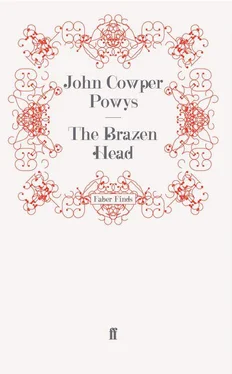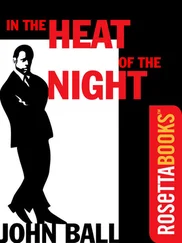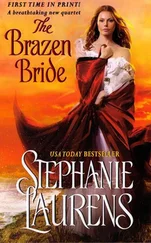“And I can tell you this, great Doctor — and do you, as Master John, who has been trying to learn Greek, says Homer always says, ‘and do you lay it to heart’—all persons, whether male or female, who make it the chief object of their lives to seek out and uncover sexual sins and sexual obliquities in other persons, are themselves — and you can perceive it, O most renowned Doctor, in their countenance, especially in their mouths and nostrils and eyes — are themselves just the very ones to be most easily assailed by an itching desire to enjoy the very same lecherous sensations which they are so anxious to condemn.
“Now, O mighty Sage, please accept my word. The moment I encountered this Bonaventura at close quarters, I knew at once from the man’s eyes and mouth and lips and nostrils that he was the sort of person who could easily be completely obsessed by sexual lust. What sins this man has committed in his own life I have not of course, O great one from Cologne, any way of knowing. But this I can tell you and this I do know; though being a little shaky in my mind from old age, you must take what I tell you with your own reservations. This abominable legend about Lil-Umbra and Tilton is simply the outward and visible expression of the viciousness of the fellow’s own nature.”
These final words of the ex-bailiff were uttered with such intensity that the face of his hearer, which was as much a hieroglyph of sympathy as, according to the old man, Bonaventura’s was of lechery, positively became a quivering crow’s beak of concentrated attention.
“I would like to know very much indeed, O most renowned of doctors,” went on the old man, “just what you feel about this matter of Roger Bacon’s influence over young people, like our mutual friend Raymond de Laon and like Lady Lil-Umbra’s brother John. Do you consider that this Friar, who is such an adept in all these new scientific inventions, has a good or a bad influence over our younger generation? Whether because of the presence of That Thing ”—and the old man gave a significant jerk of his shoulder in the direction of the object indicated—“or because of this wicked lie invented by Bonaventura, or simply because I’ve been more impressed than ever of late by the goodness and sweetness of Lady Lil-Umbra, I’ve been thinking a great deal about Friar Roger and his new science; and I’ve come to the conclusion, mighty Doctor, that there’s a change coming over the whole of Christendom — I might go so far as to say over the whole world — and I’ve decided that it’s the duty of all of us who are believers, to think out carefully for ourselves what our position is.
“It was all very well when we were young to just repeat the lessons taught us by our parents or by our priest or in our school, but when we become men — that’s what I’ve been thinking lately in this old armoury of ours, great master — we ought to ‘put away’, as holy scripture says, ‘childish things’; and not only so, but we ought to examine, yes! examine down to the very bottom, all our inherited presumptions, suppositions, and beliefs, everything in fact to which we’ve become accustomed, everything that we now take for granted; yes, examine it all, examine it over and over again from the very start, rejecting this and retaining that , as our separate, independent, individual spirit tells us, for it is our individual spirit that, at the bottom of everything, is, and always will—”
He was interrupted in his speech, and the magnate from Cologne was interrupted in his sympathetic listening by the sudden opening of the armoury door and the entrance of none other than the gigantic Mongolian Jew, Peleg. Peleg walked with slow deliberate steps straight to where the two men were seated, and addressed himself to the ex-bailiff.
“Lady Val has sent me, sir,” he said, “to convey you, if you will be good enough to allow me to help you, to my lord’s Little Room. My lady wishes me to say that her first thought was to have the two young masters’ beds moved there for the night, but my lord felt strongly that you would yourself prefer the Little Room to any other and feel more independent there. You will be, my lady wished me to say, quite as comfortable there, perhaps more comfortable than you are here in the armoury.”
The relief on the face of the old man at hearing this news was so evident to Albertus Magnus, that this latter suppressed his instinctive inclination to make a polite apology for being so anxious to spend the night quite alone with the Image of Brass.
“If,” he thought, “I make a fuss about any of this business, I shall be only confusing the issue. What I want is to have this armoury to myself for just one night — to myself along with this man-created man — if that’s what you are!” and he shot at the Brazen Head a challenging and yet a pitying glance before turning his half-scouring, half-cleansing, and altogether benevolent little eyes upon the gigantic Peleg.
“The little room!” cried the old man. “Nothing in this place could please me better! And, Peleg, old friend, I am indeed perfectly ready to go there at once if you will give me your support.”
Without further speech, and with one of Peleg’s powerful arms round his shoulder, the old man rose stiffly to his feet, and laying his left hand with a sublime indifference to this weird entity’s claim to be a living soul, upon the shoulder of the Brazen Head, as if it had been the wooden back of a negligible bench in some public hall-way, he offered his right hand to Albert of Cologne.
“We shall meet, your — your — your Eminence,” he murmured, clearly regarding their visitor as a Papal Legate, or at least as a Cardinal, “and then we shall, I hope, be able to finish our conversation.”
Albert of Cologne looked at him with all that humorous tenderness he liked to think he had learnt from Jesus. “I shan’t forget, you may be sure,” he said, “the exact point we’ve reached in our talk! Peleg here can well imagine,” and he gave Peleg a subtly-charged smile, as if he’d known him for years rather than was now seeing him for the first time, “just what we were discussing! and perhaps you wouldn’t,” he added, “mind telling the Lady Valentia that I feel too exhausted to require any dinner tonight, and shall soon take advantage of the excellent bed I see ready for me. And no doubt I shall dream of all the wonderful people and of all the amazing things I shall encounter tomorrow.”
With these final words he lowered himself in his chair, thrust out his heels with a somnolent leathery sound across the reed-woven rug in front of him, and closed his eyes, while Peleg in dutiful silence led the ex-bailiff from the room.
Into the deep quiet that followed their departure Albertus sank down, as if into the original ocean of silence out of which all sounds first sprang. Sleep was certainly what the man from Cologne needed, and he must have slept till not only the light of that long June afternoon was over, but its evening twilight too; for, when he awoke, the armoury was nearly dark.
As soon as he was on his feet, however, the first thing he looked at, by the light of the small uncovered oil-lamp that stood in front of it, was a tiny image of the Virgin, which had been a gift to the ex-bailiff by his grandmother in his childhood and which was very precious to him.
What, to confess the truth, made it especially precious to him was the fact that his little sister — who was his only youthful companion, for his parents had no other children — had once, in one of her moods, whether a mood of skittishness or of naughtiness, or because she had overheard it in some argument between priests, carved in big letters, clear across the base of the little image, the single word Parthenogenesis .
Читать дальше











